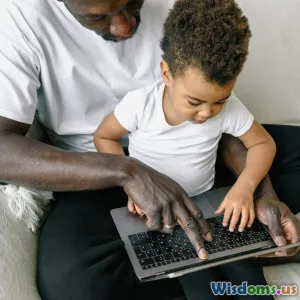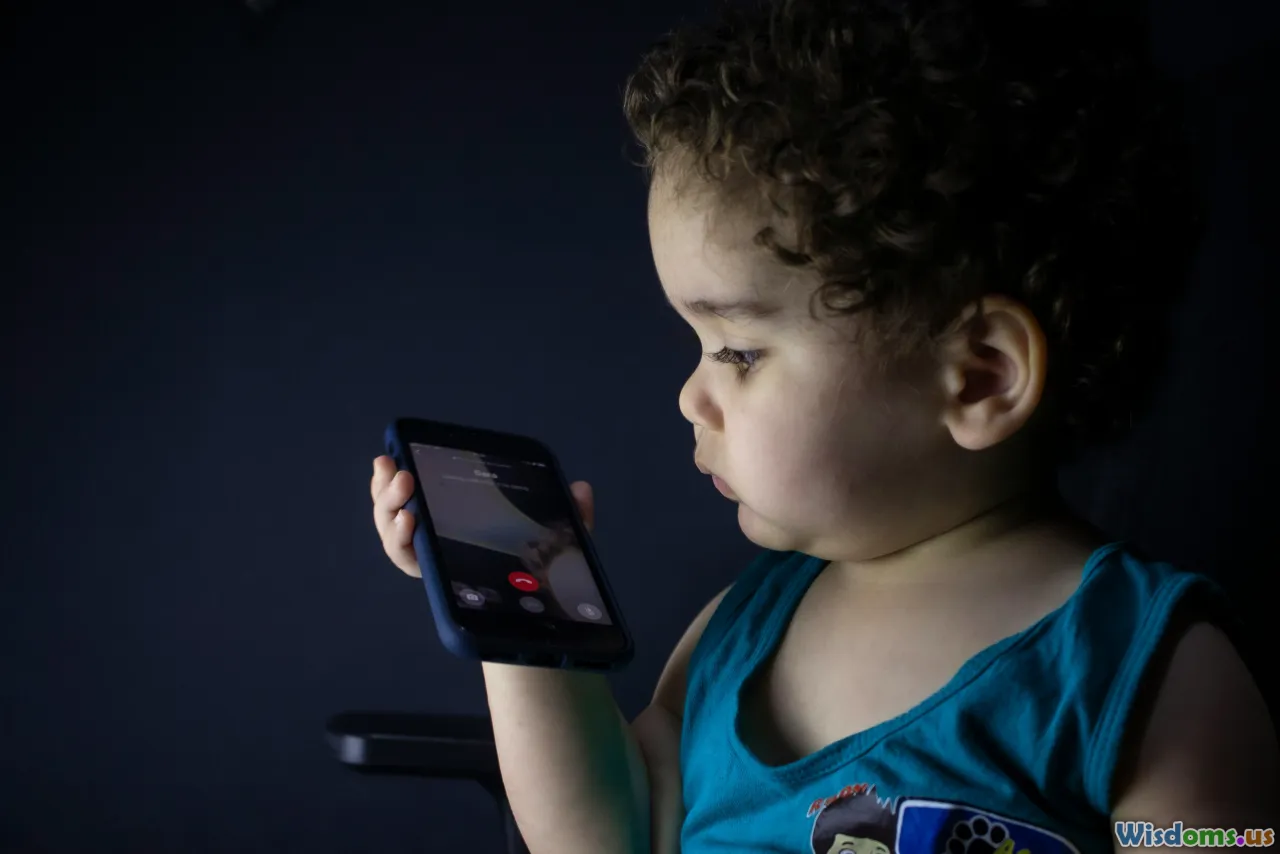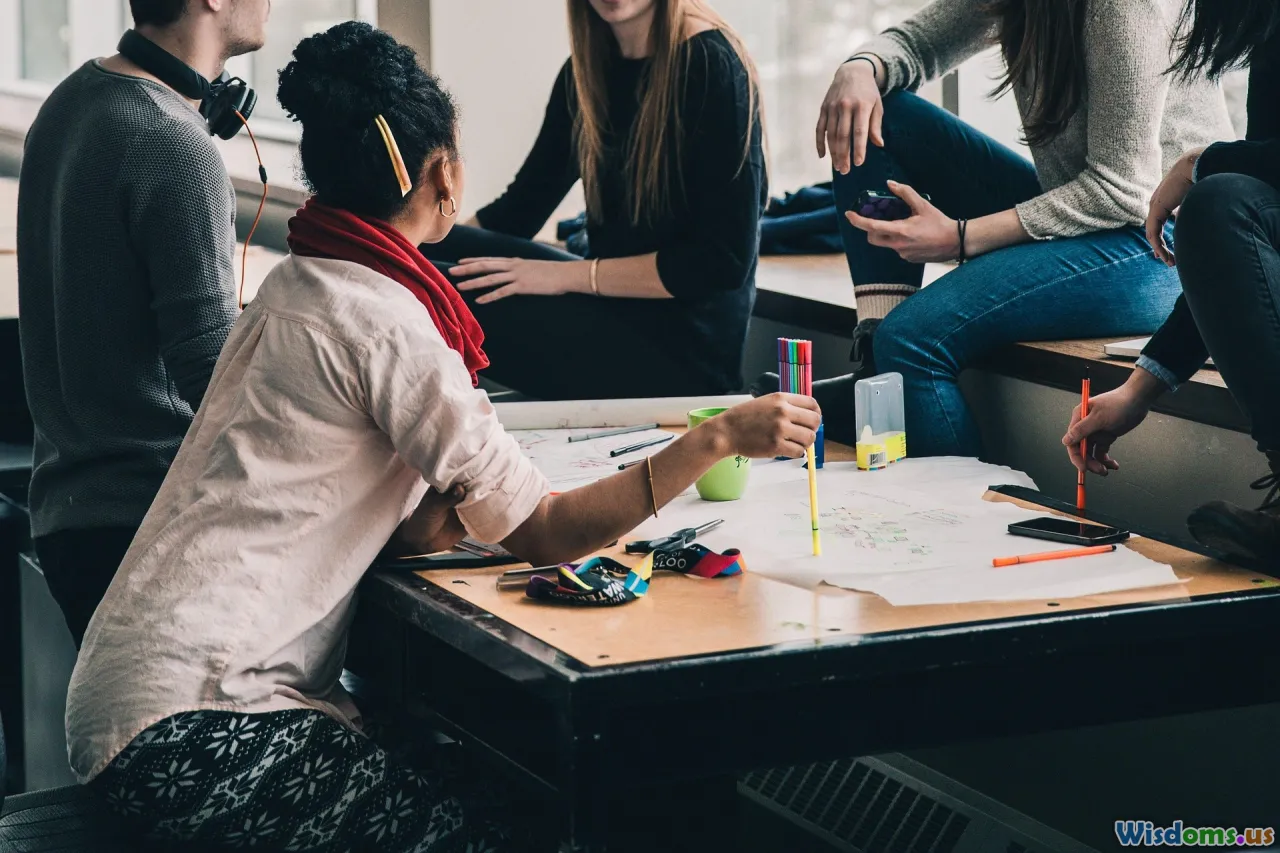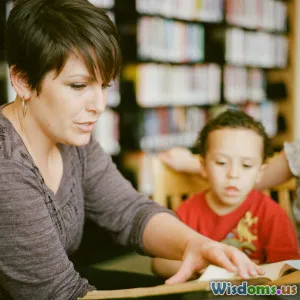
The Surprising Benefits of Tracking Kids Online Activity
13 min read Discover the unexpected advantages of monitoring children’s digital footprints, promoting safety, healthy habits, and better communication between parents and kids. (0 Reviews)
The Surprising Benefits of Tracking Kids' Online Activity
In an increasingly digital world, children's lives are intertwined with the online universe more than ever. As tablets and smartphones nestle into the hands of young learners, many parents grapple with a polarizing question: should kids' online activities be tracked? While privacy matters, the benefits of monitoring your child's internet usage go far beyond simple parental control. This article unpacks the unexpected advantages of tracking kids online — not to invade their privacy, but to nurture their growth, protect them, and set them up for an empowered digital future.
Building Trust Through Transparency

It's easy to assume that tracking is about suspicion. In reality, the process of monitoring online behavior offers a powerful gateway to transparency between parents and children. Openly discussing the decision to track devices fosters an environment where kids are neither blindsided nor feel spied upon.
When parents set clear digital boundaries and explain the why behind monitoring, children gain an opportunity to voice their opinions and concerns. This back-and-forth enhances trust — the parent models responsible online engagement, and the child sees the value in safe internet use.
Tip: Outline digital guidelines as a family. Use tools like parent-child contracts where both parties agree on acceptable online behavior, what will be monitored, and what the consequences are for breaching agreements. For instance, the "Family Media Agreement" designed by Common Sense Media has empowered thousands of families worldwide to establish digital trust lines effectively.
Proactive Protection from Online Threats

Cyberbullying, online predators, and inappropriate content are lurking realities for today's youth. According to the Pew Research Center, over 59% of U.S. teens have experienced some form of cyberbullying. While open communication is essential, monitoring your child’s digital footprint can offer a proactive defense.
Tools like Bark, Qustodio, and Norton Family allow parents to receive alerts about concerning chats, unusual friend requests, or dangerous searches. This real-time awareness helps parents intervene before issues escalate into emotional trauma or inappropriate behavior.
Imagine a scenario where a child receives repeated troubling messages on social media — timely detection via a monitoring app enables parents to act swiftly, addressing the situation with empathy and evidence rather than speculation. Recognizing red flags early can also lead to valuable family conversations about empathy, respect, and staying safe in digital spaces.
Encouraging Healthy Digital Habits

Tracking isn't solely about protection; it's also a powerful way to nurture a balanced relationship with technology. By monitoring usage, parents can identify patterns like excessive screen time or unhealthy app consumption.
The American Academy of Pediatrics recommends no more than two hours of recreational screen time per day for kids under 18. Monitoring apps can generate detailed data—what time of day the device is used, which websites are frequented, and which games claim the most hours. This data, shared openly, helps families set realistic goals for technology use.
For example, a parent may notice that screen time spikes after school but drops significantly on weekends. Identifying such trends allows for custom strategies, like trading 30 minutes of social media for outdoor play, or establishing tech-free zones at dinner.
Actionable Strategy: Use visual aids like charts from tracking apps to involve kids in adjusting their own habits. Empower children to set their own limits and self-monitor by encouraging them to reflect on their digital choices. This balances parental oversight with self-management skills.
Supporting Academic Achievement

Distance learning and virtual classrooms are the new norm. Monitoring online activity provides parents with clear insights into their child’s educational engagement. It helps answer questions like:
- Are homework platforms being used productively, or is homework being sidelined for YouTube?
- Is your child visiting legitimate educational websites or straying onto distracting ones?
Many education platforms, such as Google Classroom and Khan Academy, generate student-specific reports—when coupled with parental tracking, families can quickly spot inconsistencies and turn them into teaching moments.
After the initial transition to remote schooling during the COVID-19 pandemic, a survey by the EdWeek Research Center found that 47% of teachers worried about diminishing student focus. Parental monitoring helps mitigate this challenge by reinforcing focus during school hours and encouraging engagement with verified academic resources.
How-To: Schedule weekly check-ins to review educational progress together. Celebrate successes and openly discuss areas for improvement. Make tracking visible, collaborative, and positive—avoid framing it исключительно как контроль, instead, make it a tool for partnership and success.
Fostering Responsible Digital Citizenship

Online actions today shape tomorrow’s digital reputations. Every social media post, comment, and photo can contribute to a child’s digital footprint—an imprint that often persists into adulthood. Tracking online activity equips families to have candid discussions about reputation management and responsible engagement.
For example, a 15-year-old’s public post could later influence college decisions or job offers. By observing the types of interactions kids have online, parents can gently correct harmful behaviors and highlight positive online habits, such as respectful commenting, resisting the temptation to overshare, and recognizing real news versus misinformation.
Comparison: Think of the digital world like a real-world neighborhood. Just as parents might supervise a teenager at a public gathering, monitoring online activities serves as related digital "neighborhood watch." It isn’t about policing every move, but guiding kids towards making healthy, ethical choices that will benefit them in the long term.
Cultivating Emotional Intelligence & Coping Skills

Children often express complex emotions online that they struggle to verbalize face-to-face. Tracking gives parents the context they need to address issues that may not surface in daily conversation—such as exclusion from group chats, arguments among friends, or exposure to distressing content.
When a parent notices a pattern of angry or anxious messages, they can step in, offering support for emotional regulation. This guidance helps children process setbacks and develop healthy coping mechanisms. By being aware of these undercurrents, parents are more attuned to mental health struggles, like early signs of anxiety or social isolation.
Example: When a child receives unkind comments and reacts with sadness or abrupt withdrawal, a parent who is aware of this through monitoring can approach with empathy, spark a conversation, and equip their child with strategies for resilience and self-advocacy.
Navigating Online Privacy and Teaching Boundaries

Every parent wants their child to be safe, but children also deserve a measure of privacy—both offline and online. The surprising benefit of tracking is that, when done correctly, it models how to safeguard privacy without overstepping personal boundaries.
By choosing age-appropriate, transparent monitoring methods, families can show kids that online privacy isn't just about secrecy—it's a matter of protecting personal information, understanding platform security settings, and recognizing when to say "no" to intrusive apps or requests.
Tools like Google's "Be Internet Awesome" program offer educational games about privacy, which, when paired with real-world tracking, help solidify these concepts. Having open, ongoing conversations about what is being tracked, why, and what remains private gives children agency as they mature.
Actionable Advice: Gradually lessen monitoring as kids prove their ability to uphold online boundaries. Frame increased independence as a reward for responsible conduct, keeping the focus on mutual respect and digital security.
Giving Parents Peace of Mind… and Flexibility

Parenting in the digital age feels overwhelming. The array of platforms, trends, and dangers multiplies constantly. Tracking provides a sense of control and safety for caregivers, shifting parental effort from policing unknowns to nurturing digital wisdom.
With real-time insights, parents can grant their children more freedom within known safety limits, balancing oversight and autonomy. For working parents or guardians managing multiple children, centralized tracking dashboards reduce anxiety and streamline household digital routines—a relief that significantly boosts overall family wellbeing.
According to the 2023 Norton Cyber Safety Insights Report, 62% of parents who use parental control tools report feeling more confident about their kids' safety online. While no tool replaces real conversation, monitoring strategies are a powerful supplement to hands-on parenting and education.
Tracking kids' online activity isn’t about stifling independence—it’s about setting them up for digital mastery and safety. By building trust, proactively steering clear of dangers, and partnering with kids to shape healthy internet habits, parents can create a happier, more resilient, and well-balanced digital future for the whole family.
Rate the Post
User Reviews
Popular Posts


















